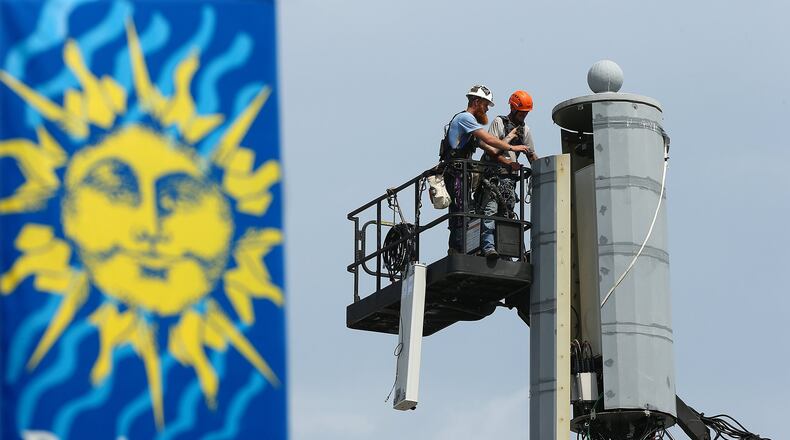A bill paving the way for faster wireless internet technology is heading to Gov. Brian Kemp.
The Georgia House voted 159-3 on Monday to give final approval to Senate Bill 66, which creates statewide regulations for cellphone companies to set up 5G technology equipment on public land. 5G is roughly 10 times faster than cellphones on existing 4G networks.
The legislation applies to companies like AT&T and Verizon that want to install small cells, which are wireless transmitters and receivers about the size of a mini-fridge.
Then cellphone companies will be able to roll out speedy 5G phones.
"Now they know they have guaranteed access and a guaranteed process," said House Ways and Means Chairman Brett Harrell, a Republican from Snellville. "They're not going to get any impediments with local governments because they know what to expect."
More than 22 states have already passed similar legislation, said Todd Edwards of the Association County Commissioners of Georgia, which advocates for county governments.
Cellphone companies wanted consistent statewide rules and fees, while local governments prioritized compensation for costs associated with use of public land, Edwards said. The legislation resulted from negotiations between ACCG, the Georgia Municipal Association, AT&T and Verizon.
“For a lot of our counties, this will help because rather than having to develop their own ordinances, they'll just go by whatever the state law says,” Edwards said. “Some of our counties wouldn't have permitted at all. We tried to find a middle ground so 5G can be deployed and they know what to expect.”
The bill outlines permitting costs, application requirements and incentives for sharing utility poles.
Companies would have to pay fees starting at $100 for small cells on existing utility poles, rising to $1,000 for erecting new poles, according to SB 66. The fees compensate local governments for use of public rights of way.
“AT&T commends the General Assembly for passing legislation that will streamline and standardize the deployment of next generation wireless broadband technology across Georgia,” said AT&T spokeswoman Ann Elsas.
Lawmakers opposing the bill said they were concerned that it could override local governments' design requirements for electricity poles, such as those in place in Alpharetta.
If that becomes an issue, the General Assembly will have to revise the 5G process next year, said state Rep. Chuck Martin, a Republican from Alpharetta.
About the Author
Keep Reading
The Latest
Featured




